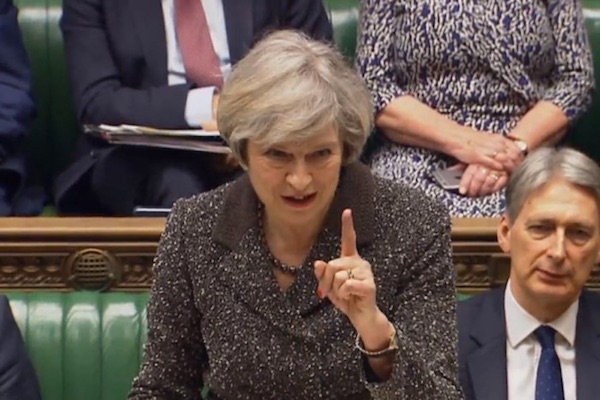
In stark contrast to PM Theresa May’s claim that post-Brexit the U.K. would have the most pro-business tax code in the world, her finance chief has just released a budget that imposes a new Digital Services Tax, possibly the worst business tax idea of the 21st century.
U.K. Chancellor of the Exchequer Philip Hammond revealed a surprising endorsement of this American-targeted tax in his autumn budget, aiming to raise more than 400 million pounds a year ($515 million) by levying a 2 percent tax on the global revenue of certain tech companies.
Like in the case of the EU Commission and member state proposals ATR has noted, the U.K. aims to tax companies above a certain threshold of global revenue.
In the Hammond tax, the threshold is crossed if tech firms have global revenues of £500 million ($640 million) or more and are operating profitably.
This puts the UK in the front of the pack in targeting—largely American—major tech companies like Google, Amazon, Facebook, Uber and others through a new tax on worldwide income. The May government has now, unfortunately, joined the voices of the EU Commission and some member states against those companies, claiming at present they are not paying ‘their fair share.’
So who will pay the tax that U.K. Treasury says is aimed at search engines, online marketplaces, and social media firms?
Almost exclusively American companies. There are no qualifying search engines other than Google and Microsoft’s Bing that fit in the measure. In the second category of social media firms, only Facebook and Instagram, which is also owned by Facebook, qualify. In the third category of online marketplaces, eBay would be hit, and Amazon likely exceeds the £500 million benchmark due to its Amazon Marketplace.
The U.K move has Europe-wide implications as well. Hammond’s moves further pressure the European Commission and member states to finalize their version of an even higher 3 percent digital services tax. He explicitly says that the U.K. favors such a multinational approach. If a ‘better’ tax solution emerges before April 2020, the U.K. would consider adopting an EU measure instead of its own policies. The Theresa May government is therefore surprisingly using Brexit as leverage for forcing an EU tax on the worldwide income of American companies.
This announcement comes at a time when U.S. Senate Finance Committee chairman Orrin Hatch (R-Utah) and ranking member Ron Wyden (D-Ore.) just released a strong letter opposing the European Union’s plan for a Digital Services Tax, worrying it will create more tensions for transatlantic relations in already difficult times.
“The EU DST proposal has been designed to discriminate against U.S. companies and undermine the international tax treaty system, creating a significant new transatlantic trade barrier that runs counter to the newly launched US and EU dialogue to reduce such barriers. Therefore, we urge the EU to abandon this proposal, urge the member states to delay unilateral action, ” said Hatch.
EU member states opposing a Digital Services Tax in their own countries or on the EU level now have to make their voices heard louder than ever with the surprise of the U.K. joining the dark side, and in the U.S., the Trump administration must further ratchet up its opposition.
This new tax poses unprecedented dangers to tax competition, tech-fostered innovation, and European and worldwide economic growth. The new tax would represent a dramatic and irreversible shift for the international tax system. It would mean damage to the transatlantic relationship and could lead to a spiral of retaliation.

